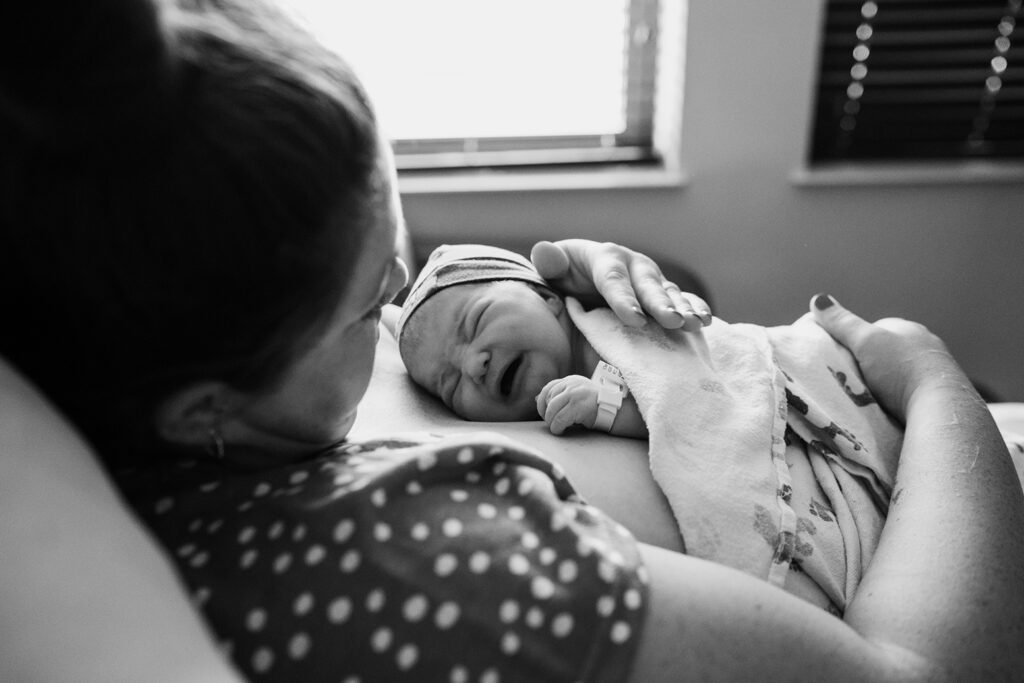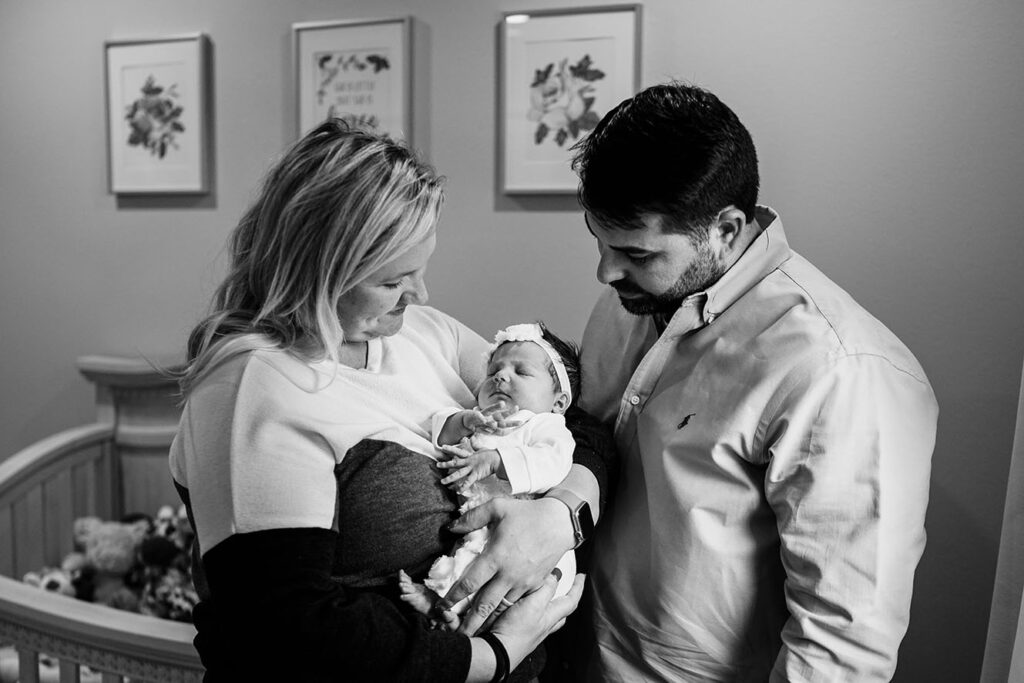When it comes to childbirth and the transition to motherhood, there’s a subject that often remains misunderstood or stigmatized: postpartum mental health.
In this post, my goal is to bring light to this subject. While it’s definitely become more open in the past few years, I feel like mental health (especially as a woman in the child bearing years) should always be discussed.
Breaking the Stigma: It’s Time to Talk About It
Sometimes, people don’t talk about the tough feelings that can come after having a baby. They might feel ashamed or scared because society often expects new moms to be happy all the time. This creates a stigma, or a feeling of shame, around postpartum mental health.
But the truth is, having a baby is a big change, and it’s completely normal for new moms to feel different emotions, including sadness or anxiety. The way society thinks about these feelings can make new moms feel like it’s their fault if they don’t feel happy. But it’s not their fault at all!
I continue this conversation already happening in a lot of circles making it known that it’s okay to talk about these feelings, and it’s definitely not your fault if you’re experiencing mental health issues after having a baby.
Talking about it is the first step to breaking the stigma and letting moms know they are not alone.
Looking for mom support in OKC? Check out this list.


Understanding Postpartum Mental Health Issues: More Than Just “Baby Blues.”
Postpartum depression, anxiety, and other mental health disorders can affect any new mom.
It’s essential to recognize that I’m not a mental health professional, but from my personal experience here are some common signs and symptoms:
- Sadness
- Hopelessness
- Anxiety
- Irritability
- Changes in sleeping or eating patterns
- Difficulty bonding with the baby
These signs can vary widely among individuals, and while they might provide some insight, they are by no means exhaustive or definitive.
Knowing these potential signs and symptoms can lead to early intervention and recovery.
Still, it’s always best to consult with healthcare or mental health professionals who specialize in postpartum care for a comprehensive understanding and proper support.
The Importance of Seeking Professional Help
Having a baby is a big change, and it’s normal for new moms to feel many different emotions. But sometimes, those feelings can get too heavy to handle alone.
That’s why it’s good to talk to professionals who know a lot about helping new moms feel better.
Professionals like doctors and therapists know special ways to help moms who feel really sad, worried, or stressed after having a baby. They can talk to moms and find the best ways to make them feel happier and more like themselves again.


Strategies for Self-Care and Healing
In addition to seeking professional help, here are some non-traditional self-care ideas:
- Art Therapy: Letting your feelings flow onto paper through painting or drawing can be incredibly therapeutic. Local art centers often offer classes tailored for self-expression.
- Gardening: Getting your hands dirty and nurturing plants can connect you with nature and provide a calming effect.
- Mindfulness Meditation and Yoga: Specific practices that focus on breathing and body awareness can be grounding.
- Cooking or Baking Classes: Engaging in a hands-on cooking class can be a delightful way to distract the mind and enjoy the creation process. Plus, you get to enjoy the tasty results!
- Animal-Assisted Therapy: Spending time with animals, such as therapy dogs, has shown to reduce stress and promote relaxation. Look for local services that offer this unique form of healing.
- Outdoor Adventure Groups: Sometimes, stepping outside your comfort zone and joining an outdoor adventure group, like hiking or kayaking, can boost confidence and provide a fresh perspective.
- Dance and Movement Therapy: Dancing isn’t just fun; it’s a powerful way to express emotions. Look for classes designed to help release stress and energize the body.
- Support Groups: Connecting with other new moms who understand what you’re going through can provide invaluable support and encouragement.
- Reading and Writing Groups: Sometimes, immersing oneself in literature or writing one’s thoughts down in a supportive group setting can be incredibly healing.
- Virtual Support: In the age of technology, don’t overlook the power of virtual communities and online resources tailored for postpartum support.
It’s not just about pampering yourself; it’s about finding what resonates with you and helps you heal!



Whether you’re planning ahead or currently struggling, there is no shame in talking about these challenges. Let’s confront them head-on!
Interested in capturing those first moments your baby is born? Check out my birth photography portfolio here.
comments +